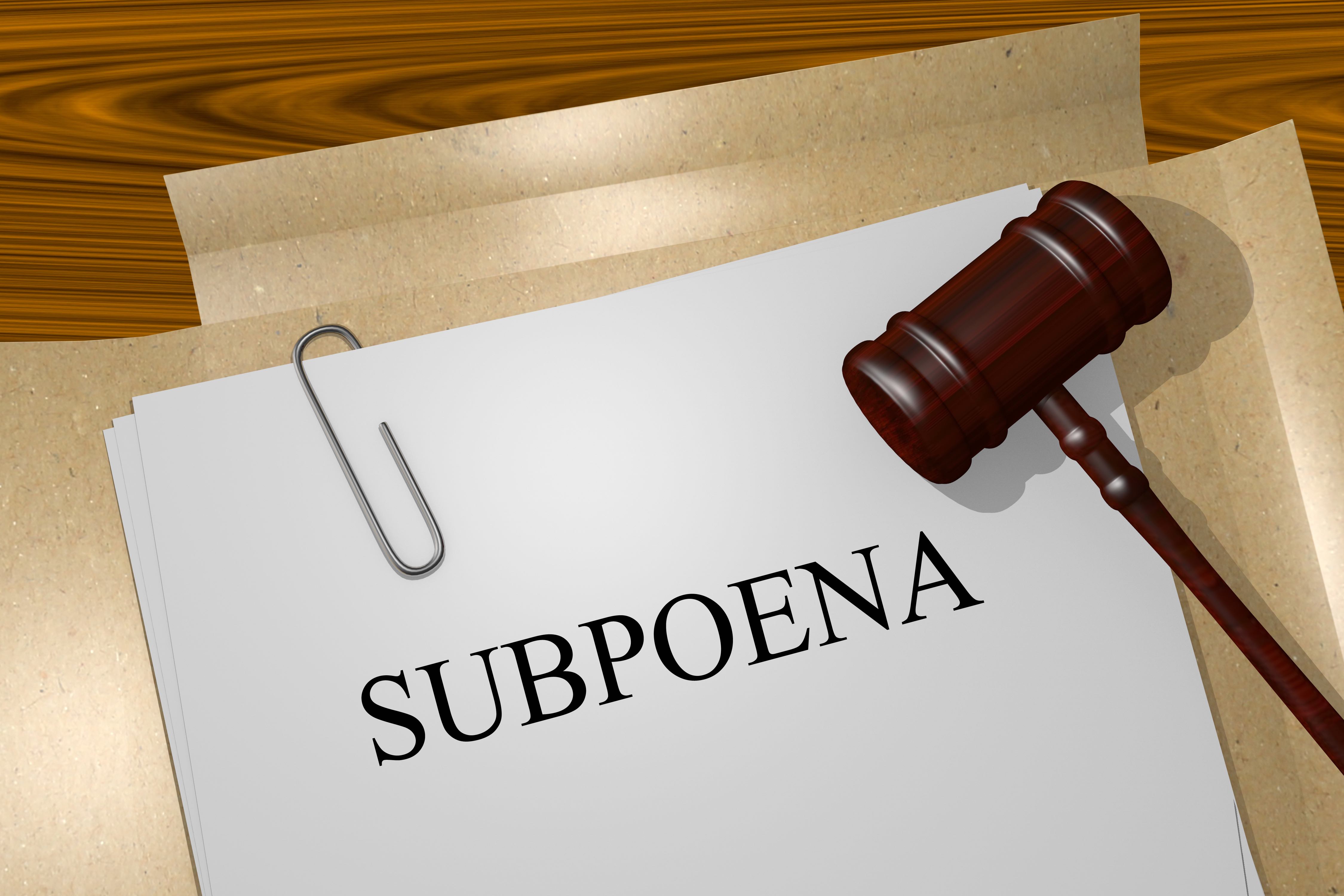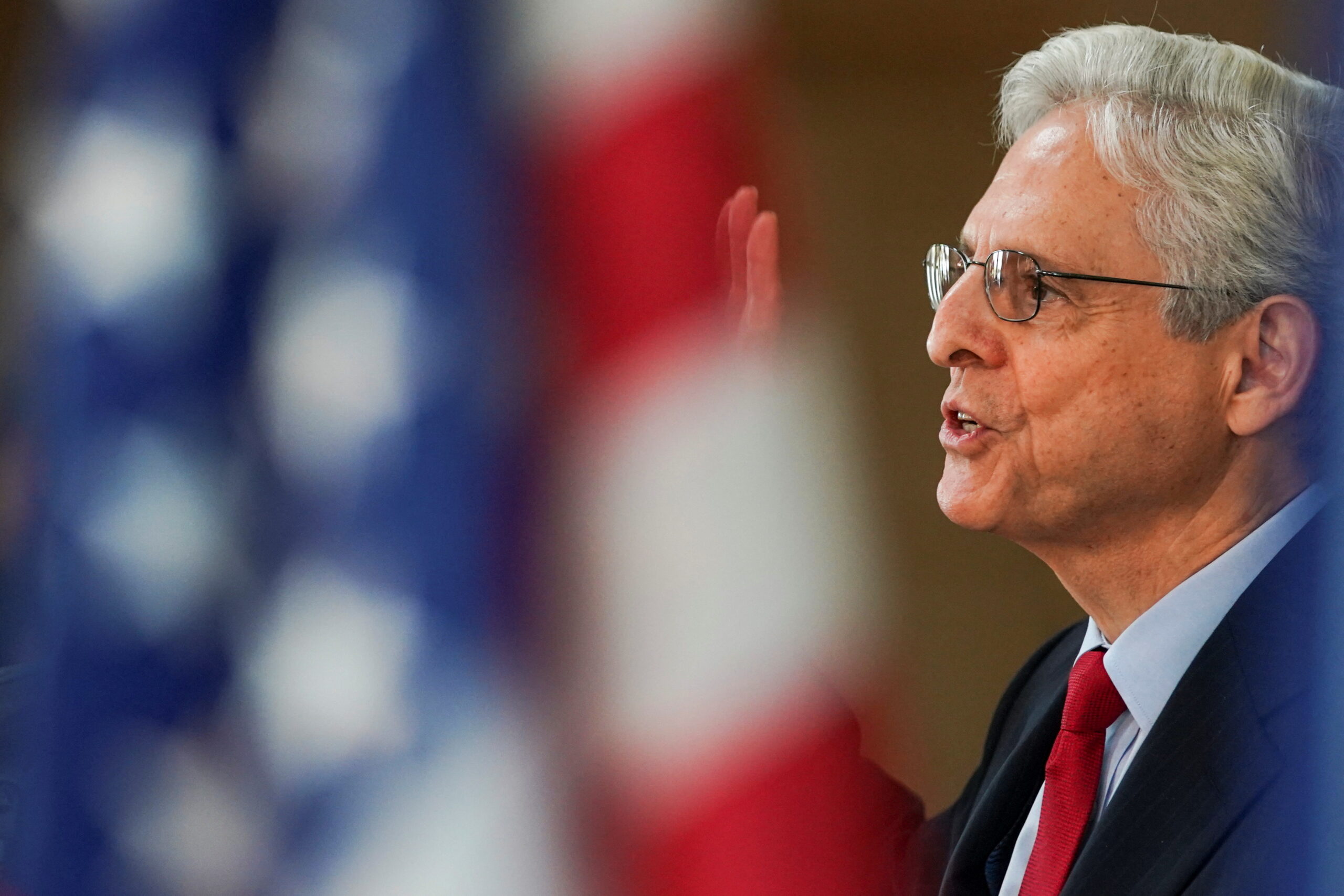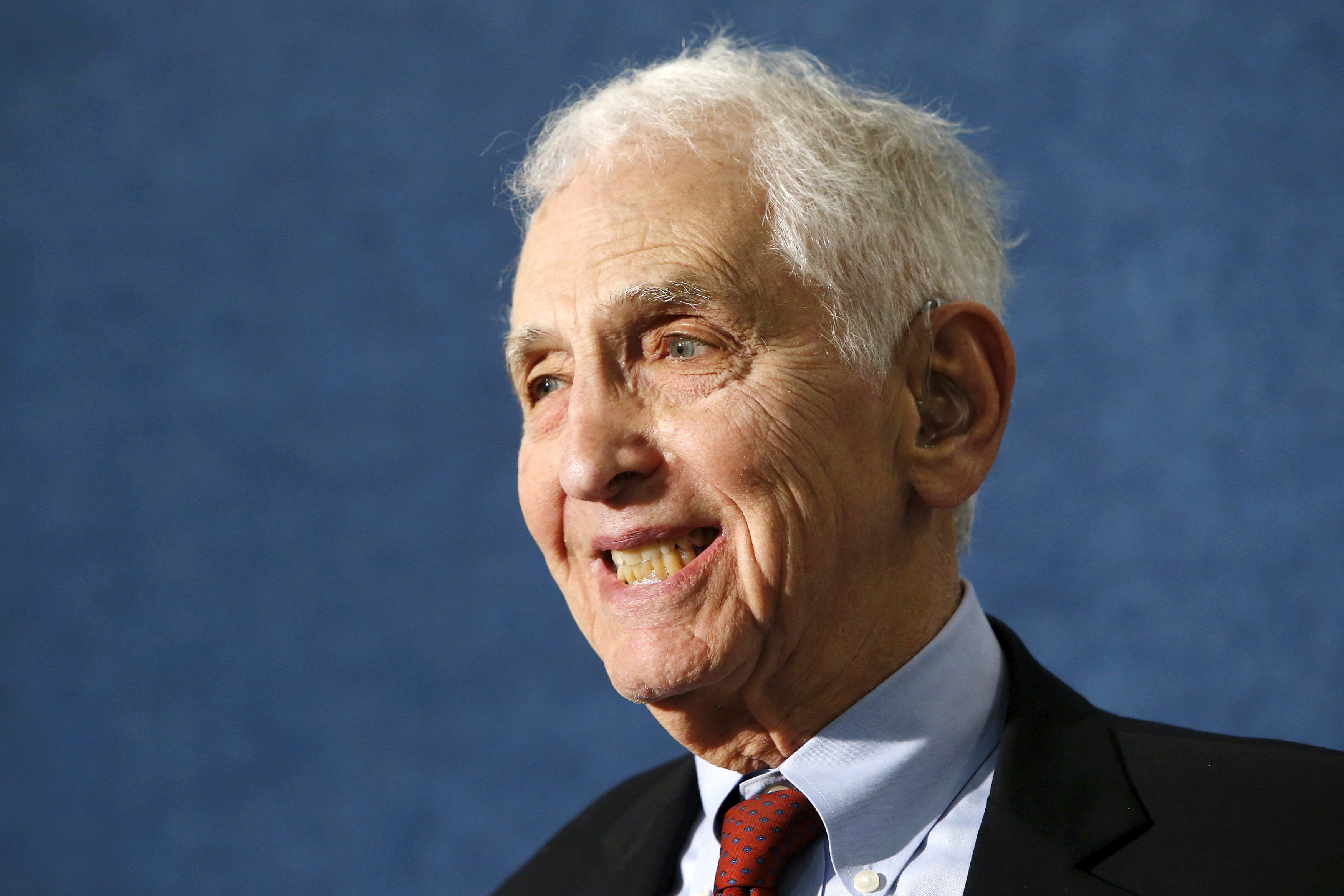Journalists sometimes rely on confidential sources to inform the public about the government. But a journalist’s refusal to disclose the identities of those sources can test the limits of constitutional protections for a free press.
According to the U.S. Press Freedom Tracker, at least 30 journalists and news organizations received requests from courts to identify their sources or provide news gathering materials in 2023. Journalists have an ethical and professional obligation to keep their sources confidential if anonymity was promised, but a judge can hold a journalist in contempt of court for refusing to disclose their sources, and the government can subpoena newsgathering materials from telecommunications and social media companies.
On Jan. 18, the U.S. House of Representatives unanimously passed the “Protect Reporters from Exploitative State Spying” Act, or the PRESS Act, a reporter’s shield law that would protect journalists from being required to reveal their sources in federal court and bar telecommunications and social media companies from accessing their digital information.
In an interview with First Amendment Watch, Caitlin Vogus, deputy director of advocacy at Freedom of the Press Foundation, which maintains the U.S. Press Freedom Tracker and has been campaigning on behalf of the bill, discusses the importance of the PRESS Act and its proposed protections and explains the urgency in getting a federal law passed protecting journalists before this upcoming election.
Editor’s note: This interview has been edited and condensed for length and clarity.
FAW: Why is the PRESS Act necessary?
CV: It’s maybe the most important press freedom legislation in history, and the reason is because in the past decade, or maybe even a bit longer, we’ve really seen administrations from both parties that have increasingly spied on journalists and their sources in an attempt to stifle important reporting and prevent government transparency. And the PRESS Act would address that problem by protecting journalists from surveillance, or from being compelled to reveal their sources or newsgathering material, and as a result, it would make sources feel much more comfortable coming forward to talk to journalists, to blow the whistle, to share important information that informs the public. It will improve the quality of journalism and ensure that Americans have access to the information that they need to be informed participants in our democracy.
FAW: Who is behind this legislation?
CV: Reps. [Kevin] Kiley and [Jamie] Raskin really deserve credit for introducing the bill into the House and really shepherding it through that process and getting the great result of having a unanimous passage of the bill on a voice vote in the House, so that’s incredible. In the Senate, the sponsors are Sens. [Ron] Wyden, [Mike] Lee, [Dick] Durbin and [Lindsey] Graham, which is also a great bipartisan group of senators to have sponsoring a press shield bill. A lot of members of the House and the Senate have been championing shield bills for a long time now, for decades. Mike Pence, before he was vice president, had a shield bill;Rep. [Jim] Jordan had a shield bill; Sen. Graham had a shield bill. And so really what I think we’re seeing here is coming to fruition, a lot of years of work on this by many members of Congress, and really recognition that it’s a bipartisan priority to protect journalists, because Americans, no matter their political beliefs, rely on the media for information.
FAW: The PRESS Act was rejected by the last Congress due to the sole objection of Sen. Tom Cotton. In his speech, he criticized The New York Times’ publishing of the Pentagon Papers, describing it as “an effort to demoralize the American people and turn them against the war effort.” He added that reporting on the wars in Iraq and Afghanistan “revealed details” about America’s terrorist tracking, and in turn aided in helping enemies “evade justice.” He said the reporting was “reckless and harmful to our national security.” How would you respond to that?
CV: I think Sen. Cotton’s objections to the PRESS Act in the last Congress were really outrageous, especially going after the Pentagon Papers. Daniel Ellsberg, the source for the Pentagon Papers, before he passed away, he was a founding member of the Freedom of the Press Foundation and a member of our board. And it’s no exaggeration to say that publishing the Pentagon Papers is one of the most important news stories in American history, and it showed how our government had lied to us about the Vietnam War. And for Sen. Cotton to use that as an example of irresponsible reporting or unjustified reporting is really shocking, because in fact, it’s an example of courageous reporting and courageous whistleblowing by Daniel Ellsberg and really the press doing what it should be doing, which is exposing government lies. And that was recognized in the Supreme Court opinion rejecting the government’s attempts to impose a prior restraint on The New York Times and The Washington Post. So it was really unfortunate to see Sen. Cotton object on those grounds just because I think it’s historically inaccurate and just flat out wrong, but also for another reason, which is that the PRESS Act contains within it exceptions that are meant to ensure that national security is still protected. So it says that the act wouldn’t apply to shield a source and newsgathering materials if it would be necessary to prevent terrorism or identify a perpetrator of terrorism or to prevent a threat of imminent violence or significant bodily harm or death. So I think the way the PRESS Act is written is to include these kinds of common-sense exceptions that would protect our national security and would protect Americans in the extremely unlikely event that it was necessary to force the reporter to name a source or reveal newsgathering materials in order to stop a terrorist attack or prevent someone from being harmed or killed.
FAW: Can you tell me more about those exceptions? Where would the line be drawn and who’s making that determination?
CV: I think the way that it would work out under the act is that the act also includes the requirements for notification. A journalist would be notified if the government was seeking their source information or newsgathering materials, or especially if they were seeking something like their phone records or their emails, where sometimes the government doesn’t even have to come directly to a journalist, they just go to the email service provider or the phone provider to seek the records. But what the PRESS Act would do is it would require the government to give notice to the journalist that those records are being sought. And maybe the government would be claiming ‘We need these records because it’s necessary to prevent a terrorist attack or to prevent violence,’ maybe it would be claiming one of these exceptions, but because the journalist would have notice, they would have the opportunity to come into court and to argue against the invocation of those exceptions, to bring forward whatever evidence or arguments they have to say that the government isn’t invoking those exceptions legitimately. So it sets up the courts to be the arbiter in those situations, which I suppose some journalists may still object to, but it’s a very narrow category of situations. It doesn’t allow the government to argue any reason that it thinks they can to justify disclosure of those records, it has to fall within these limited exceptions of the PRESS Act, and journalists would have the chance to make their arguments in court and to convince the court that the exceptions don’t apply.
FAW: How did you navigate concerns around defining, for the purposes of this legislation, who is and is not considered a “journalist”? Are there any narrow definitions that could be detrimental to this bill or that you think have the possibility of being introduced into it?
CV: The great thing about the PRESS Act is that it actually has a very broad definition of covered journalists, and it’s broad enough to protect both mainstream journalists but also independent outlets. It’s broad enough to protect journalists regardless of political leanings or perceived political leanings. And there are really no loopholes or caveats that could allow the government to try to play favorites when it comes to what kinds of journalists are covered and what kinds aren’t. And the reason for that is because the definition of journalist in the PRESS Act is a functional one. It focuses on the act of newsgathering. It doesn’t ask, you know, who does the journalist work for or do they have press credentials? Or where do they go to school? None of that is relevant. The definition says “the term ‘covered journalists’ means a person who regularly gathers, prepares, collects, photographs, records, writes, edits, reports, investigates or publishes news or information that concerns local, national or international events or other matters of public interest for dissemination to the public.” And so it’s very focused on the act of journalism, gathering the news, collecting the news, reporting the news, publishing the news, all of those things that journalists do every day. And it’s a broad definition that would include student journalists, for example, it would include professional journalists, it would include freelance journalists. So I think that the PRESS Act really does a good job of having a broad enough definition to try to sweep in as many journalists as possible and provide as broad of protection as possible.
FAW: The bill doesn’t just seek to protect reporters and their sources. It also includes provisions protecting telecommunications and social media companies. Why? What role do they play in protecting sources?
CV: The PRESS Act, in addition to being a strong reporter’s shield law, is just a really strong anti-surveillance bill as well. And so unlike some past shield bills, it protects not just journalists themselves, but it also extends that protection to their phones and their emails and other technology providers. And I think part of the reason for that is because we’ve seen historically, how administrations of both parties have used electronic service providers to try to get to journalists and their sources as almost a workaround. So just to give one example, from the Obama administration, somewhat infamously, it came to light that the Obama administration had secretly subpoenaed telephone records of 20 Associated Press reporters over about two months in 2012. And this didn’t come to light until a year later, in 2013, because it was done in secret. The Obama administration didn’t inform the AP initially when it subpoenaed those telephone records. And it was a part of a leaks investigation. It was looking into an AP story that was about a CIA operation and when the AP found out, they were really outraged. And they were really concerned about the subpoenas that had been issued to their telephone providers, and their inability to contest them because they didn’t have notice and couldn’t come forward and they could have argued at least a First Amendment or common law right to have those records shielded.
Under the Trump administration, it came to light after he left office that Trump had spied on The New York Times, The Washington Post and CNN using their electronic and phone records. [It obtained] almost four months of phone records from four different Times reporters who had reported about how James Comey had handled certain investigations during the 2016 presidential election. The Trump administration also obtained phone records from three Washington Post reporters who were reporting about Russia’s role in the 2016 election. And then it also obtained phone and email records from a CNN correspondent. And all of this again was done in secret and it didn’t actually come to light until after Trump had left office and the Biden administration disclosed it to those reporters.
FAW: Where does the law stand now in terms of telecommunications and social media companies getting subpoenas to reveal a reporter’s materials? Under what conditions can they resist the subpoena now? How would the bill change that exactly?
CV: There is a statute now called the Stored Communications Act. And as part of that statute, there are provisions in it that govern government requests to electronic communications providers, so things like email service providers and social media companies are governed by the Stored Communications Act. And so there are certain legal requirements that the government has to meet in order to request records of any user you know, a regular user or a journalist. But the problem is that under the provisions of those acts, notice to the user can be delayed in certain circumstances. So the Stored Communications Act specifically says in certain circumstances, the government doesn’t have to tell a user that they’re seeking their electronic communications records. And so that means, under current law, the government has been able to seek journalists’ records from their phone companies or from their electronic communications providers, and not give notice to the journalists or the news outlets that those records are being sought. And so that means that the news outlets hands are really tied, because their records might be being combed through by the government, and they don’t even know it. And so what the PRESS Act would do is, first of all, it would generally forbid the government from seeking those types of records from a third party provider like an email provider, except in very limited circumstances. And if the government does try to seek those records, it has to give the journalist notice and the opportunity to be heard to contest that first.
FAW: Earlier versions of the legislation have been passed by the house in 2022 and 2007, never by the Senate. What would need to change for this bill to be successful? What are the differences, if any, to the introduction of the bill now in comparison to its introduction in 2022?
CV: There have been previous shield bills that have failed in the Senate, including the PRESS Act, which didn’t pass in the last Congress when it failed in the Senate. I think the difference this time around is that there is really serious firepower behind the bill. Both Sens. Durbin and Graham are co-sponsors of the PRESS Act in the Senate, in addition to Sens. Wyden and Lee, and that’s very significant because Sen. Durbin is the chair of the Senate Judiciary Committee, and Sen. Graham is the ranking member of the Senate Judiciary Committee, and that’s the committee that has jurisdiction over this bill, that would have to mark up and approve the bill before it could go to the Senate floor potentially. And so to have both the chair and the ranking member co-sponsoring the bill and supporting the bill is really significant, and I think should give us great hope that this time the PRESS Act can get through the Senate. And then I think the other difference this time around is that there is just a growing recognition of what a bipartisan issue this is.
FAW: You warned last year that current DOJ guidelines limiting the federal government’s ability to subpoena reporters could be rolled back under a different administration. “It’s a safe bet that a future President Trump would not be a fan,” you wrote. “We can’t afford to leave reporters’ ability to protect their sources up to the whims of a future administration.” How urgent is this effort with a consequential election looming?
CV: It’s incredibly urgent. The DOJ guidelines are great, they’re very good step forward, but unfortunately, they could be rolled back by a future administration, and we’re facing a presidential election that’s very uncertain, and we may see a president return to office who has said that he believes that journalists should be imprisoned, and has vowed to go after journalists if he doesn’t like they’re reporting. So it’s a very dangerous time for reporters and for their sources. And it’s essential that we have something codified in law that protects that reporter-source relationship, so all Americans know that the journalism they rely on to stay informed will continue no matter who is in the White House.
More from First Amendment Watch:



